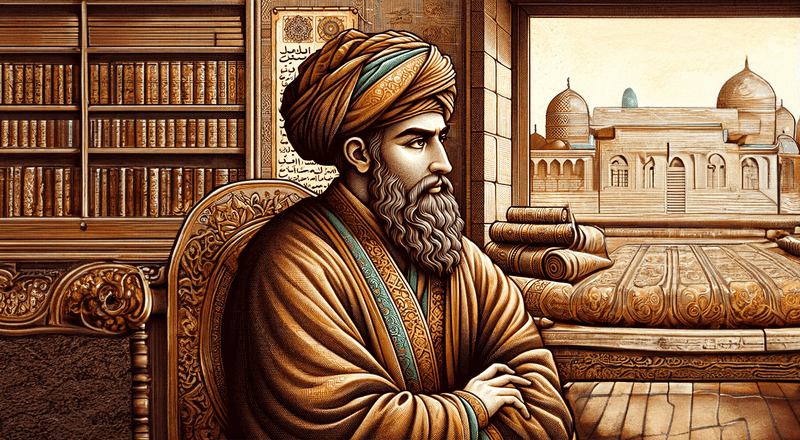
Unlocking Divine Messages: Ibn Sirin’s Guide to Dream Interpretation
Have you ever wondered what your dreams mean? Imagine dreaming about a beautiful garden or a scary snake and waking up curious about what it might mean for your life. Over a thousand years ago, a man named Ibn Sirin became famous for helping people understand their dreams. This is his story.
Who Was Ibn Sirin?
Ibn Sirin was born in Basra, Iraq, around 654 AD, a long, long time ago. His full name was Muhammad Ibn Sirin. He was known for being incredibly wise and smart. People trusted him because he was not only very knowledgeable but also very kind and fair. His father, Sirin, had been a slave who gained his freedom, and Ibn Sirin grew up learning a lot from his family and the scholars around him.
The Dream Interpreter
What made Ibn Sirin so special was his amazing talent for interpreting dreams. In those days, people believed that dreams were important and could tell you things about your future or guide you in your life. But understanding dreams wasn’t easy. It was like trying to solve a puzzle where the pieces are hidden in your mind.
Ibn Sirin became the go-to person for dream interpretation. He wrote a famous book called "Ta’bir al-Ru’ya," which means "Interpretation of Dreams." This book became a guide for people who wanted to understand the mysterious messages in their dreams.
How Did Ibn Sirin Interpret Dreams?
Ibn Sirin’s way of interpreting dreams was very thoughtful. He didn’t just give one simple meaning for each dream symbol. Instead, he considered many different things to find the right meaning. Here’s how he did it:
- Symbolism: He believed that everything in a dream is a symbol. For example, dreaming of a tree might symbolize a person, and the condition of the tree could tell you something about that person’s health or life.
- Context Matters: Ibn Sirin thought it was important to know about the dreamer’s life. He would ask about their situation, their feelings, and what was happening around them. This helped him understand the dream better.
- Types of Dreams: He said there are different types of dreams. Some come from God and are like messages or warnings. Others come from the devil and might be scary or confusing. And some dreams just come from our own minds and are influenced by what we’ve been thinking about.
Dreams are like letters from the unseen world. They are messages to be deciphered with wisdom and care.
Ibn Sirin
Stories and Examples
Here are some examples of how :
- Seeing the Prophet Muhammad: Ibn Sirin said that if someone dreams of seeing the Prophet Muhammad, it’s a very good sign. It means that person is on the right path and their prayers might be answered.
- Snakes: Dreaming of snakes usually meant there was an enemy nearby. The details of the dream, like the snake’s size and behavior, would give more clues about this enemy.
- Trees: Different trees could mean different things. A healthy, fruitful tree might symbolize a good person, while a dry, withered tree could mean someone is having a tough time.

Even though Ibn Sirin lived a very long time ago, his work is still important today. People around the world continue to read his book and learn from his interpretations. His ideas have shaped how many people, especially in Islamic cultures, think about dreams.
In our modern world, where we still wonder about the meanings of our dreams, Ibn Sirin’s wisdom offers a bridge between ancient knowledge and contemporary curiosity. His work reminds us that dreams can be powerful and meaningful, connecting us to deeper parts of ourselves and possibly to something greater.
So, the next time you wake up from a dream and find yourself pondering its meaning, remember Ibn Sirin, the wise man from Basra who dedicated his life to unlocking the mysteries of the dream world. With Ruya, you can interpret your dreams using the knowledge of Ibn Sirin. This dream journal and AI interpretation service allows you to explore your dreams with a selected perspective, blending ancient wisdom with modern technology.





